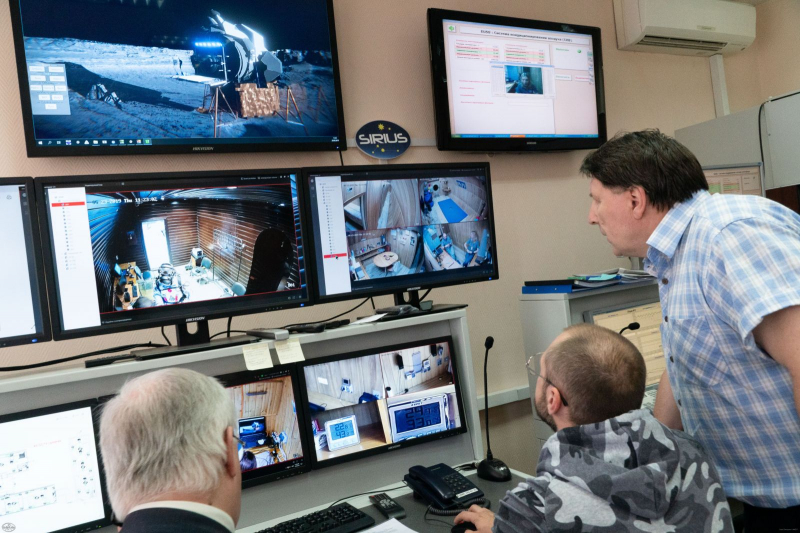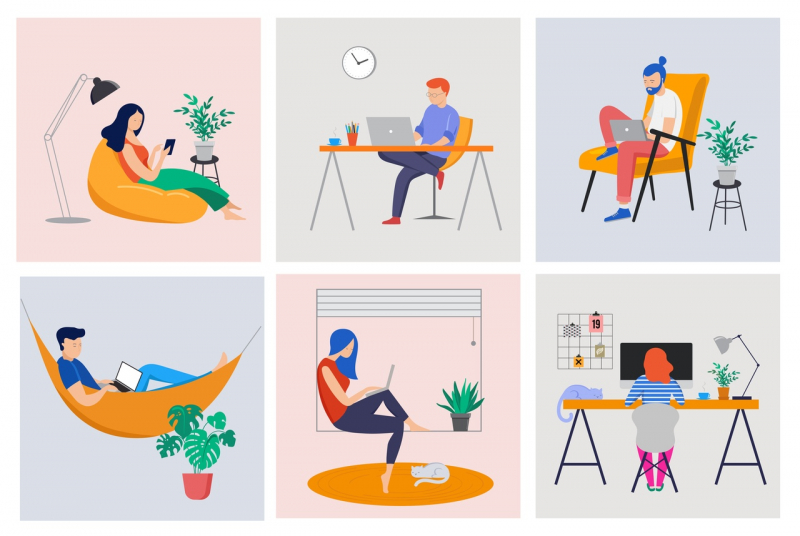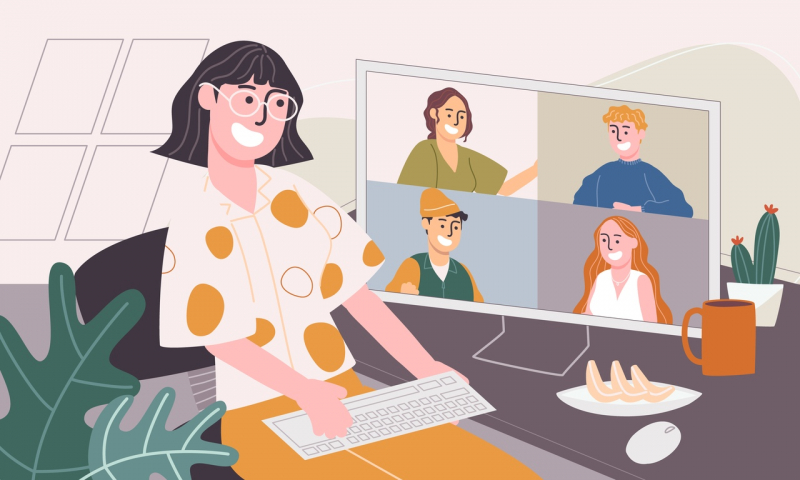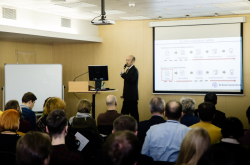How to stay productive at home
Many people right now are having to work from home for the first time. This causes certain problems: inconsistent sleep schedule, irregular working hours, as well as lack of motivation and concentration. Isolation in itself is also dangerous for mental health.
Cosmonauts who work on the ISS have a detailed daily routine. If they don’t do something on time, it becomes a problem because the schedule gets ruined and deadlines are missed. Following a strict schedule one of the things simulated in isolation experiments. Volunteers are accompanied by a team of managers whose goal is to ensure the non-stop mode of the experiment. Absolutely everything takes place at its own time, from morning exercises to bedtime.

People in isolation can plan their schedule themselves by making to-do lists with deadlines. However, keep in mind that people tend to overestimate themselves. Grand plans probably won’t be accomplished. Volunteers who participated in a 500-day experiment wanted to learn Chinese and read a bunch of books during this period, but obviously didn’t manage to.
So, you should be realistic. Try using this method: multiply the amount of time you’re planning to spend on something by three: this will probably be closer to the truth. Don’t hesitate to applaud yourself even if you accomplished something only partially. Positive feedback is important. Treat yourself well, don’t make yourself work harder than ever, and take your time to relax.
Your to-do list should be put down somewhere; it’s not enough to compile one in your head. It gives you an additional boost of motivation and the ability to manage your schedule better.

If you live with someone, they should know about your tasks – this way, it’s easier to complete them. Ask people you live with not to distract you when you’re busy with one of your activities.
The most efficient strategy is to follow your usual routine: take a shower, clean yourself up, wear your working clothes, put on makeup and so on. Don’t underestimate your conditioned reflexes, as they are a powerful tool. If you’re following your usual routine, your brain will automatically switch to working mode.
It’s a great idea to arrange morning meetings with colleagues and to send daily reports to your boss, professor, or research advisor. Unfortunately, not working when you don’t have to is a basic biological feature of people: that’s how we save our resources.

During isolation, you can realize what’s distracting you. Analyze your habits, don’t check every notification on your phone, and don’t go to the kitchen any time you want to for no reason.
Here’s a schedule of Mars-500’s participants:
-
Sleeping – 8.5 hours
-
Morning routines – 1.5 hours (1 hour for breakfast included)
-
Daily operations – 30 minutes
-
Getting ready for work, tour of the complex, checking the day’s schedule – 1.5 hours
-
Work – 2 hours
-
Conducting scientific experiments – 4 hours
-
Lunch – 1 hour
-
Physical exercise – 1 hour
-
Leisure and dinner – 4 hours
How to maintain a healthy sleep schedule

According to the isolation experiments, the inner biological clock of a human is for some reason extended to 26 hours a day. Scientists don’t know why it is so, but cosmonauts, submariners, and speleologists are familiar with this phenomenon. And yet, a proper sleep schedule is crucial to productivity, immunity and health in general.
Our biorhythms are regulated by a hormone called melatonin, and it’s better not to mess with this process. Melatonin is produced only during a short time at night. If a person isn’t asleep during this period, they don’t receive enough melatonin, and their immune system may be harmed. It’s scientifically proven that depression is also related to sleep cycle disorders.

However, one shouldn’t regularly take melatonin as a supplement. It’s better to use other ways that can help you fall asleep easily: switch your devices to night mode, get some fresh air, get some physical exercise, or maybe even have a glass of warm milk before bedtime.
One should be awake during the daylight hours. As it turns out, we all have receptors that are sensitive to lightning. These receptors help regulate all functions of our bodies, and also help produce vitamin D that influences our mood and immunity. So, you should get up early, open your windows, and spend some time on the balcony.
If you live in the city, where there’s not much sunlight, you can take vitamin D as a supplement or eat food rich in it: liver of cod fish, Atlantic herring, and salmon.
How to avoid a sedentary lifestyle

Lack of physical activity is also a huge isolation problem. According to the WHO, it causes many diseases and affects cardio-vascular system.
The Mars-500 and SIRIUS experiments included studies on the effect of training and lack of it on health. As it turned out, half an hour of physical activity a day is enough to stay energized and healthy. This amount of exercise also corresponds to the WHO’s recommendations (150 minutes per week).
According to experiments, interval training is the best option. One minute of intense exercise (push-ups, squats, lunges, and jumps) is enough to come out of a homeostatic state.

Spending most of the time sitting down or even lying down is unhealthy to the musculoskeletal system. It’s recommended to take 10,000 steps daily, which is, of course, impossible without leaving your apartment. However, try to at least get up more often, do some stretches, maybe even work while standing up for some time.
Another option to increase your amount of activity is to take the stairs instead of the elevator when you’re going out to get groceries. Cleaning, dancing, and playing with children are also quite helpful here.
Add some exercise to your daily routine, and remember that it’s not only good for your muscles, but for the immune system and mood as well.
How to keep your spirits up

Isolation is a huge source of stress for the organism. It’s especially hard on extraverts who are used to spending a lot of time communicating with people. To fight loneliness they can call their friends and family more often, participate in webinars and discussions, and find some new friends online.
Another big problem is being stuck in the same place with other people: family members, spouses, children, and neighbors. To avoid conflicts, one should, on one hand, respect others’ need for privacy, and, on the other hand, participate in shared activities. For example, cosmonauts, who usually spend their time alone in different parts of the ISS (which is roughly the size of a football field), regularly come together to watch films or play board games to maintain a healthy relationship.

Isolation can make your days blend together. Our brain, however, requires new emotions: not only our mood depends on it, but also cognitive functions, such as memory, attention, and thinking. Try doing something new every day: cook an exotic meal, use your fancy dishes, check out an opera or a play (many are available online these days), learn how to paint or to make pottery, do some yoga or breathing exercises. As you can see, there are many options.
And most importantly, remember that by staying at home you’re basically saving lives. You should be proud of yourself, as what you’re doing is for a good cause.
Full lecture is available here (in Russian).





